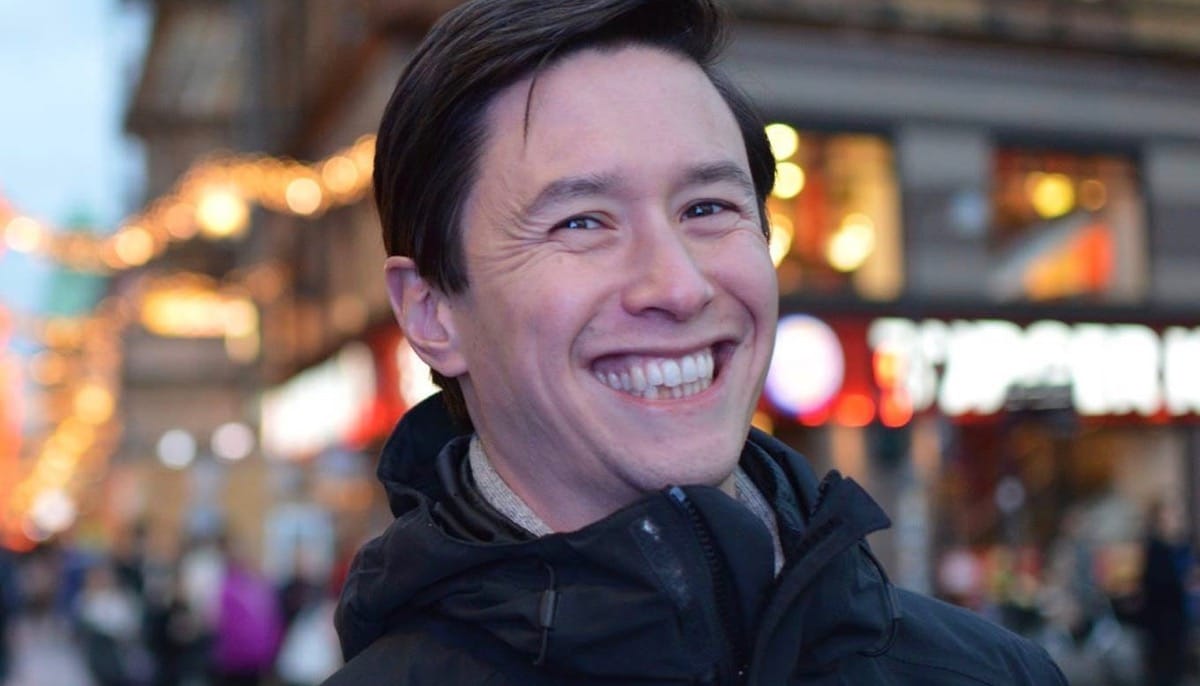These words are here because of Aaron.
He forged the path for their publication in this Buddhist journal, creating a place for them in the wider public discourse on Buddhism in the West. Blogging at Dharma Folk and Angry Asian Buddhist, Aaron J. Lee was steadfast in his nearly decade-long campaign to make visible the ongoing exclusion of Asian American Buddhists from the dominant conversation around American Buddhism.
He was especially keen on holding popular Buddhist magazines accountable for positioning white Buddhists—who represent a minority of US Buddhists—as the norm while simultaneously excluding perspectives from Asian American Buddhists. In the guise of his pissed-off, Excel-wielding alter ego, arunlikhati, Aaron diligently detailed the extent of the displacement, poring over the latest Buddhist books and magazine issues, and producing graphics—for instance, his signature “Asian meter”—to tease out the contours of exclusion. In so doing, he made the invisible visible, giving it form with an eye toward promoting recognition and possible reconciliation.
I imagine Aaron would be tickled to see his musings on the Asian meter quoted in one of the very magazines he sought to influence.
“Why the Asian meter?” he wrote in a 2009 blog post. “I admittedly have the chutzpah to imagine that the few people who read this blog might just spread the information, and perhaps over time there will be enough buzz over how ridiculously unrepresentative these magazines are with regard to the community that they might actually try to change their groove.” His determined efforts paid off; publications like this one have begun to include the writings of Asian American teachers, scholars, and practitioners on a more frequent basis. I imagine Aaron would be tickled to see his musings on the Asian meter quoted in one of the very magazines he sought to influence.
This fall marks one year since Aaron’s death at age thirty-four from metastatic non-Hodgkin’s lymphoma. It seems an appropriate time, then, to reflect on the fruits of his unwavering spiritual labor and commitment to creating a more representative picture of the American Buddhist community. Moreover, this moment of remembrance provides an opportunity to deeply consider the work that remains in recognizing the contributions of Asian American Buddhists and dealing in a more forthright way with issues of race in our collective practice.
Aaron’s attention to the underrepresentation of Asian American Buddhists highlights a larger historical fact of race-making for many Asian Americans in the United States: our affiliation with Asian religions has served as a marker of racial difference and deviance. Thus, Buddhism has been both a catalyst for our exclusion from the American national imagination (the targeted incarceration of Buddhists of Japanese ancestry during WWII, for example) and a source of our refuge through ongoing alienation. For Asian American Buddhists, then, writing about our Buddhist identities becomes a path for understanding our American condition.
We can pay tribute to the contributions of Aaron J. Lee by taking up his commitment to creating refuge for Buddhists of Color.
Over dinner a few months before his passing, Aaron poignantly confided that, in many regards, he saw himself writing more about the question of what it means to be American than about Buddhism. In this light, efforts to center Asian American Buddhist writers speak to a much needed move to broaden our understanding of racial dynamics in the United States. They are part of a larger intention to build a collective American Buddhism that takes seriously the liberation from social suffering.
In his last piece of public writing, Aaron reflected on his illness and desire to embody refuge for others. “For years I’ve wondered about how to create an Op-Ed Project for Buddhists of Color in order to encourage a greater diversity of writers,” he shared. “But when I now refocus the question—‘How do I create a refuge for Buddhists of Color?’—I find myself with a broader set of options to explore, not to mention more insightful ways to articulate my goals for increasing the diversity of Buddhist writers.”
On this one-year anniversary of his death, we can pay tribute to the contributions of Aaron J. Lee by taking up his commitment to creating refuge for Buddhists of Color. One simple, profound act practitioners can undertake to honor his legacy would be to make equitable space for the teachings of Buddhists of Color in the public discourse and in print media so that their words, too, can be here because of Aaron.

